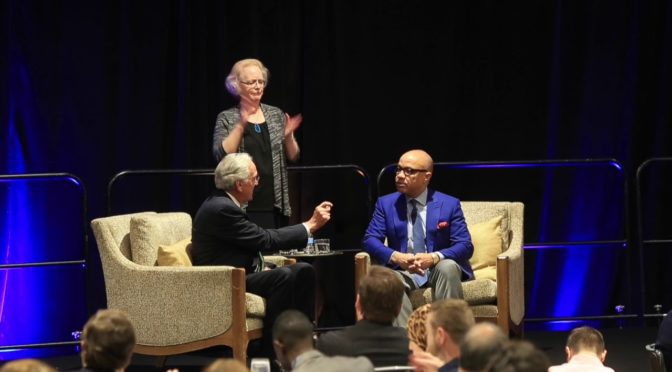In 2016, the Ford Foundation made a commitment to social justice. Unfortunately, their early efforts were plagued with missteps when it came todisability community issues. In 2017, the Ford Foundation made a commitment to centering disability rights. The result of this new effort is still in its early phases, but the work they have done on disability so far has been nothing short of extraordinary, and there is even more to come.
Speaking with NOS Magazine, Noorain Khan of the Ford Foundation was candid about the process of growing much-needed knowledge on disability. “2017 was us diving in, meeting with activists, self-advocates, folks in government, nonprofits, and other funders… [We] met with any disability organization that requested a meeting. This shaped [our] knowledge and the knowledge of the Ford Foundation itself.”
“[The Ford Foundation] knew that we couldn’t do this by ourselves.” They hired disabled consultants and brought disability rights legend Judy Heumann on as a senior fellow. Ford senior fellowships are awarded to civil rights luminaries. Previous senior fellows have included luminaries like Michelle Alexander, author of The New Jim Crow. Senior fellows focus on projects to advance their causes. Judy Heumann’s project is focused on disability and media, but her work at the Ford Foundation extends to changing the organization itself.
“We’re excited to be working with [Judy Heumann], and we’re excited to be challenged by her,” Khan said. She described efforts not only make their grantees think about disability rights, but to change the inner workings of the Ford Foundation itself. “What would grant making look like if we centered people with disabilities?”
Ford transitioned to new grant application system earlier this month. Starting January 1, all grant applicants will have to answer the question of disability inclusion. Every Ford Foundation regional office is now required to award some grants that focus on disability rights. Extra funds were allocated to address disability issues in new and creative ways within the Ford Foundation itself.
Even before the new grant cycle, Ford has begun funding disability rights. Ford announced that it was supporting efforts by ADAPT and NCIL to develop new ADAPT chapters, train disabled activists in nonviolent civil disobedience, and complete the long awaited disability rights documentary Piss on Pity.
Judy Heumann told NOS Magazine that the aim was to focus on organizing and power building. “Ford itself is so committed to community, not just disability but across the board. My knowledge coupled with the people that I introduce Ford to, more knowledge, more connections. It’s really helping Ford to expand its circle. Next year, Ford will be more of an expert in the field.”
When asked about future Ford disability grants, Ms. Khan told NOS Magazine that the Ford Foundation cannot discuss grants until they are fully finalized and approved. She did stress, however, that 2018 would be “big” for disability rights. There will be more grants. “We want to do more learning. There’s always more to do. We want to think about our underlying values. We’re thinking about human rights. We’re thinking about intersectionality. We’re thinking about leading with humility, we’re learning about nothing about us without us.”

